Building your resume soft skills is a must if you’re hoping to land your dream job or move up in the workplace. Set yourself apart from other candidates by developing and highlighting your list of soft skills.
What Are Soft Skills?
Soft skills are skills and characteristics a person develops that can improve their relationships with others at work and in their personal lives. These skills are usually broad and can be applied to most jobs, unlike more specific skills that might be required for certain positions (technical abilities, accounting, analysis, etc.).
A person’s ability to interact is a must when it comes to achieving and maintaining gainful employment, so if you’re looking for better professional opportunities, take your resume to the next level by including your soft skills.
Here are the top five soft skills that hiring professionals look for and a couple of tips on developing them.
#1- Critical Thinking
Critical thinking is an umbrella term for various skills professionals use to analyze situations and make the most appropriate decisions. No matter the job, critical thinking is almost always in-demand. As a result, recruiters and hiring managers look favorably upon candidates who can outline critical thinking skills because these individuals are usually fit for self-management.
To develop critical thinking skills, you need the ability to examine and critique your work. Look for ways to improve your workplace practices. Ask questions about things you don’t fully understand. Use trustworthy resources to research relevant topics. Consider the facts first. There’s a chance that they may not align with what you’ve been told or what you agree with. Sometimes, thinking outside of the box is the best way to think critically about a topic.
#2- Communication
In most careers, the ability to communicate is essential, whether the candidate will need to communicate verbally, in writing, or both. Hiring managers prefer candidates who know how to talk to people and get the right message across. Communication skills include speaking to various audiences in ways they’ll understand and identify with. The main goal of effective communication is to get the point across and ensure that the message is understood in full, whether an individual is providing information or receiving it.
To communicate more effectively at work, focus on making sure your words convey the message you’re trying to get across. Think about your body language and adjust it so that you appear more open and welcoming when conversing with others. Stick to speaking factually rather than relying on unverifiable stories or gossip. Practice communication exercises that promote collaboration, like taking turns when you talk.
#3- Time Management
Nobody appreciates the wasted time, least of all hiring managers. Therefore, when examining candidates who apply for an open position, these professionals look for individuals who display their ability to work efficiently in terms of the time allotted and the work completed each day. Individuals with adequate time management skills get to work on time, complete the tasks on their daily agenda, and do so while maintaining consistent quality.
To manage your time effectively, prioritize the tasks you have ahead. Avoid trying to multi-task, because this often leads to neglecting one duty while trying to finish another. Start as early as possible if a challenging task is at hand, and avoid becoming distracted by other projects or workplace events. Additionally, you can try time management apps to help you organize your day and focus your time.
#4- Flexibility
Flexibility can encompass several smaller skills, but overall, flexibility covers an individual’s ability to evolve along with the changes that occur in the workplace. Hiring managers favor individuals who are willing to learn, pick up on new skills efficiently, and try to adapt to the demands of the workplace. Flexibility can include tasks an individual is expected to perform, schedules, new skills, and roles an individual might fill depending on where their unique abilities are most needed.
Flexibility is easier to develop than some other soft skills on this list because your attitude will lead you toward greater adaptability. Keeping an open mind, being willing to try new things, and having a positive attitude at work will help expose you to things you’ll need to learn as your work environment evolves. Try to keep a calm demeanor, ask questions when given the opportunity, and do your best to foster a supportive network you can reach out to for help when planning to learn a new skill.
#5- Customer Service
Customer service is crucial for most jobs, and having customer service skills can make a difference in hiring considerations. Recruiters look for candidates who use their other soft skills to provide the best experience possible for the customers they interact with. Good customer service involves being polite, communicating effectively, and providing service that leaves the customer with a positive impression of the employee and the company.
Customer service is another soft skill that involves learning by doing. To improve your ability to serve customers, you need to work with them. Take opportunities to interact with the people you’re serving and try to find little things you can do to ensure they have a positive experience with your company. Asking, “is there anything else I can help you with,” when interacting with customers can open the door to plenty of new practices you can adopt.
Keep Soft Skills In Perspective
There are several ways to highlight your resume’s soft skills, depending on your style. You might include your skillsets when covering the tasks you handled during past work or schooling. You might also want to create a master skill list to make it easy for employers to find. Perhaps listing your skills in an online candidate profile will work as well.
However, if you choose to list your skills, be sure you’re taking time to work on them. Additionally, think about how you’re going to answer interview questions about your skills, such as how you developed them, the challenges you’ve faced, and your plans to grow your abilities in the future.










